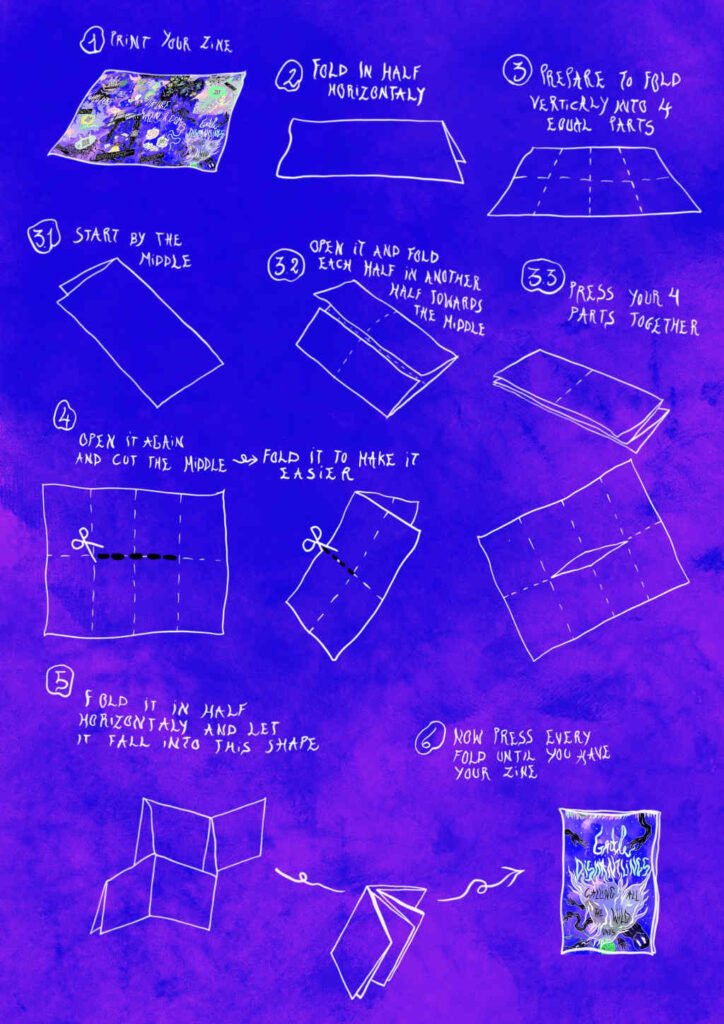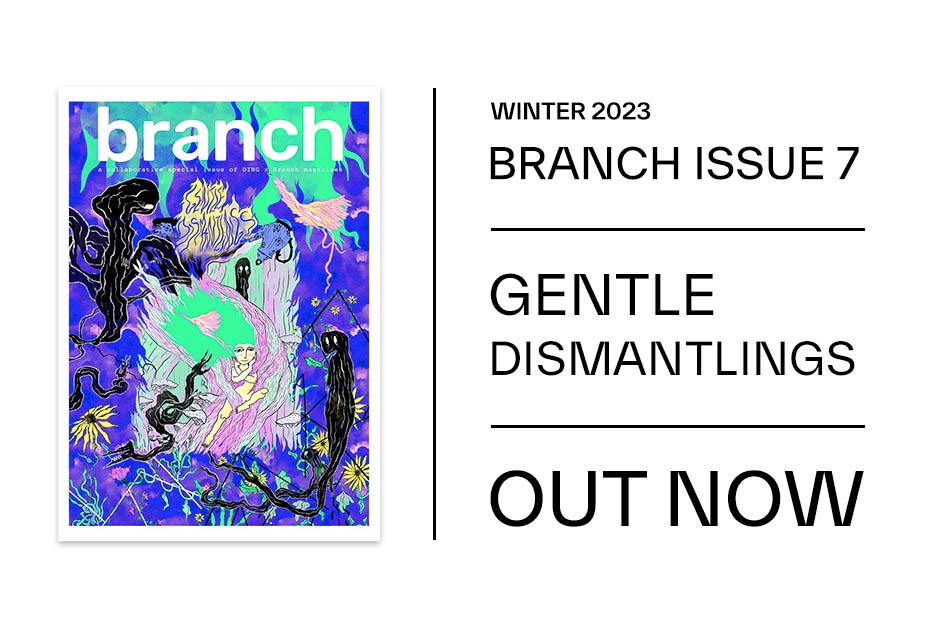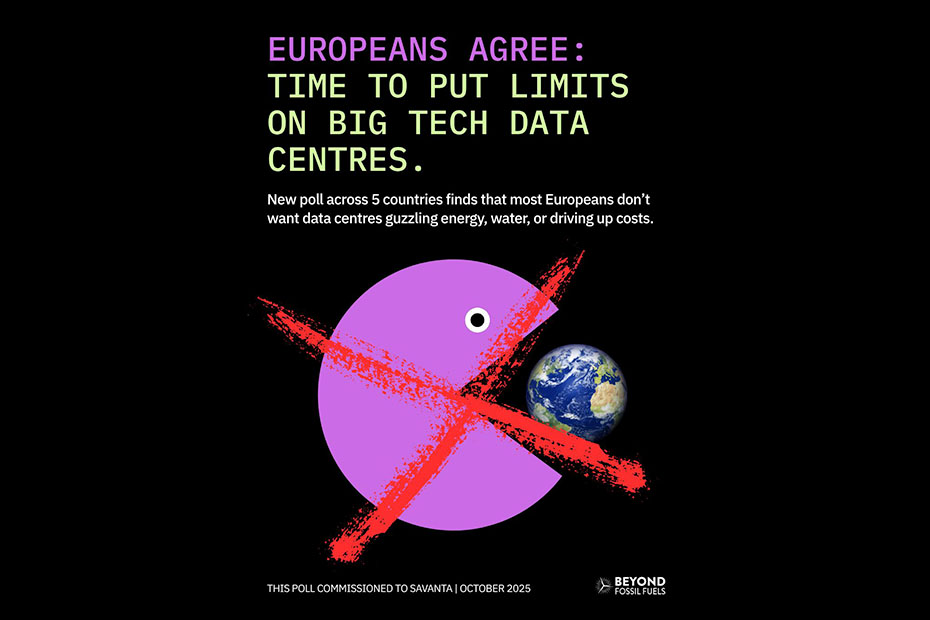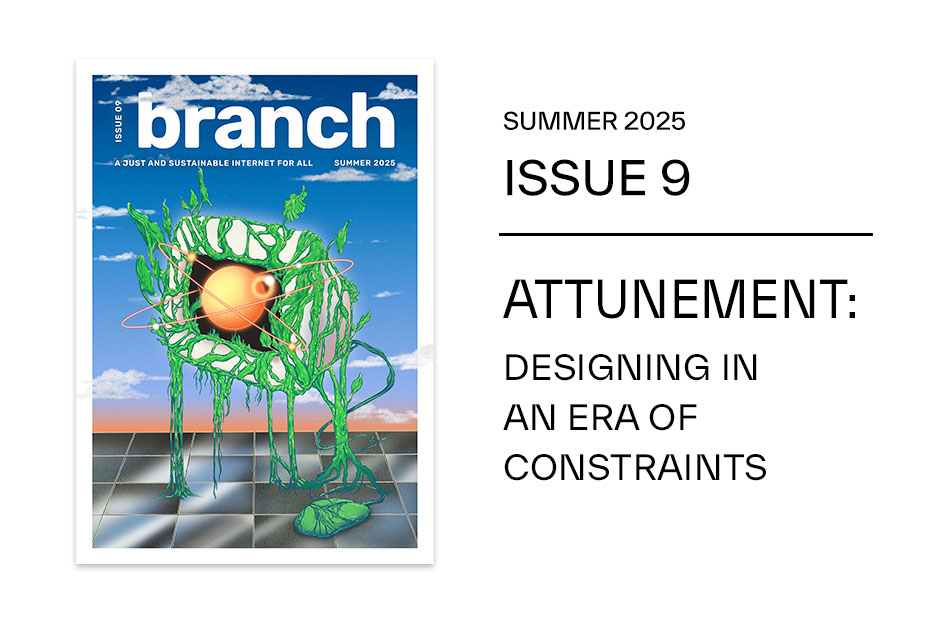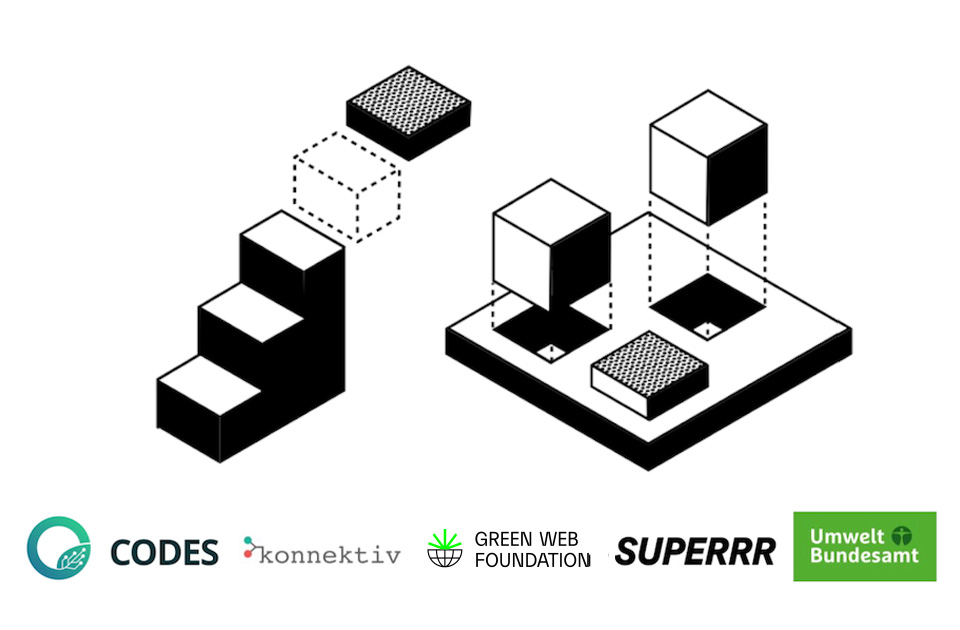Calling All the Wild Ones
“We do not live in a simulation—a streamlined world of products, results, experiences, reviews—but rather on a giant rock whose other life-forms operate according to an ancient, oozing, almost chthonic logic.
Snaking through the mist of the banal everyday is a deep weirdness, a world of flowerings, decompositions, and seepages, of a million crawling things, of spores and lacy fungal filaments, of minerals reacting and things being eaten away—all just on the other side of the chain-link fence.”
Jenny Odell, How to Do Nothing: Resisting the Attention Economy, 2019
If there is one word we could use to describe the current task of facing ecological destruction in ways that enable the survival of our species along with the six million others who dwell alongside us, perhaps that word should be redefinition.
For in defining ourselves as separate from (and superior to) our more-than-human neighbours—animal and vegetal, machine and algorithmic—as subjects in a world of objects, we drink from the well of “deep, unnamed sadness” that the Native American botanist Prof. Dr. Robin Wall Kimmerer speaks of when describing species loneliness—a sensation felt deep in the bones, which emerges from the loss of earthly relationship after centuries of ecological domination.
But what if there is a different way forward? How can we foster a just, equitable and joyful transition through alternative means of kinship and worlding? How can we redefine business-as-usual, not only with regards to how we view ourselves but also the intricate webs of more-than-human connection which make us, us?
Most importantly of all, how can we gently dismantle the structural forces that prevent us from interacting with each other—and all other life on earth—with care and celebration?
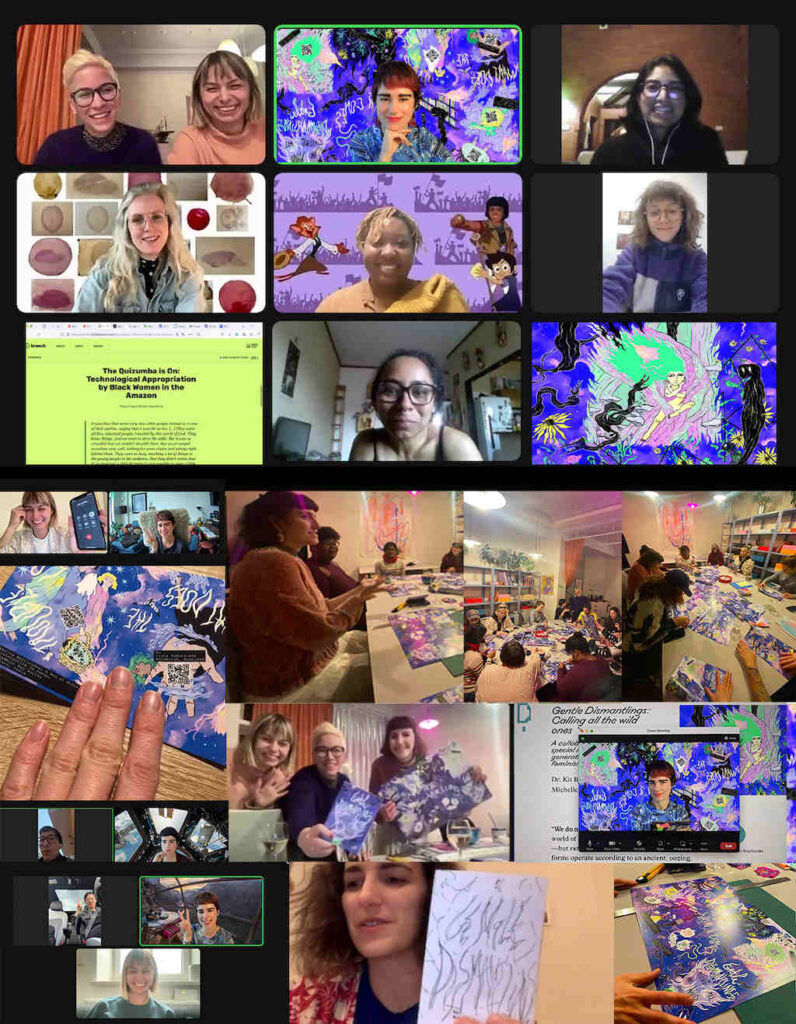
To bring this special issue into being, we invited more-than-human feminisms around the globe, from India to the Bahamas, to join us in uplifting emergent interspecies worlds within this world. We combined forces for the first time—across a magazine for the internet and things1, a magazine for a sustainable internet2, and a critical design studio3—conversing across platforms, cars and cockpits in between the spätis of Berlin and the misty shores of Vancouver.
Exhausted by the daily inundation of media and hot takes on the inevitability of climate change, we decided to experiment in moving beyond a damage-centered approach to one that was desire-based4.
In an open call for contributors, we sought far and wide for the wildish happenings that were actively engaged in fostering decolonial, feral, queer, intersectional and ancestral technologies (long evoked by communities on the margins). We invited future activisms rooted in pleasure and joy, and social imaginations that would energise. We received an enthusiastic response from projects, happenings and dream-spaces around the world—abundant evidence that the next generation of posthuman feminisms are already hard at work, reframing ecological, structural and technological forces in ways that make change.
We are pleased to share the most notable tales in this (very special!) special issue, many of which are still in active emergence. By exchanging notes across alternative ways of being and dwelling alongside, they express the many ways that global injustices (from species extinction to technological accumulation) can be ever-so-gently, yet powerfully, transformed.
The diverse nourishments of these seven featured pieces are designed to be absorbed like vitamins: metabolized slowly and in your own time, fostering wisdom and inspiration:
- Marjahn Finlayson, a climate specialist in The Bahamas, calls for climate world-building that first confronts the racist and sexist practices that exclude expert voices in specific communities. She intertwines climate action with personal stories in climate science, a field she describes as not designed to benefit or accommodate people like her.
- London-based artists Georgina Voss and Eva Verhoeven ask what the trouble looks like when it comes (and what happens afterwards) through the lens of botanical project in a cultural institution where plants and electronics are transformed into pests, rot and lockdowns.
- Thiane de Nazaré with the Federal University of Bahia invites us to learn how Black women in the Amazônia are turning the tables on digital colonization, redefining technological empowerment by carving out new territories in cyberspace.
- Canadian anthropologists Kate Hennessy and Trudi Lynn Smith unravel the entwined tales of world’s oldest tortoise Tu’i Malila and the fading art of anthotype prints, diving deep into flows of memory, extinction, and the haunting legacies of colonialism…
- Scotland-based Ukranian artist and writer Iryna Zamuruieva reveals what contact improvisation and Ukraine’s struggle can teach us about the power of saying ‘No’…
- Farmer, teacher and researcher Gayatri Ganesh weaves together an homage to the ancient landscapes of the Western Ghats of India, a global biodiversity hotspot battling exceptional habitat loss in a dance of death and renewal…
- And last but never least, Bangalore-based designer Padmini Ray Murray invites us into a 3D interactive essay that envisions seed banks as digital servers, influenced by feminist autonomous infrastructures of consent, intimacy, and shared knowledge.
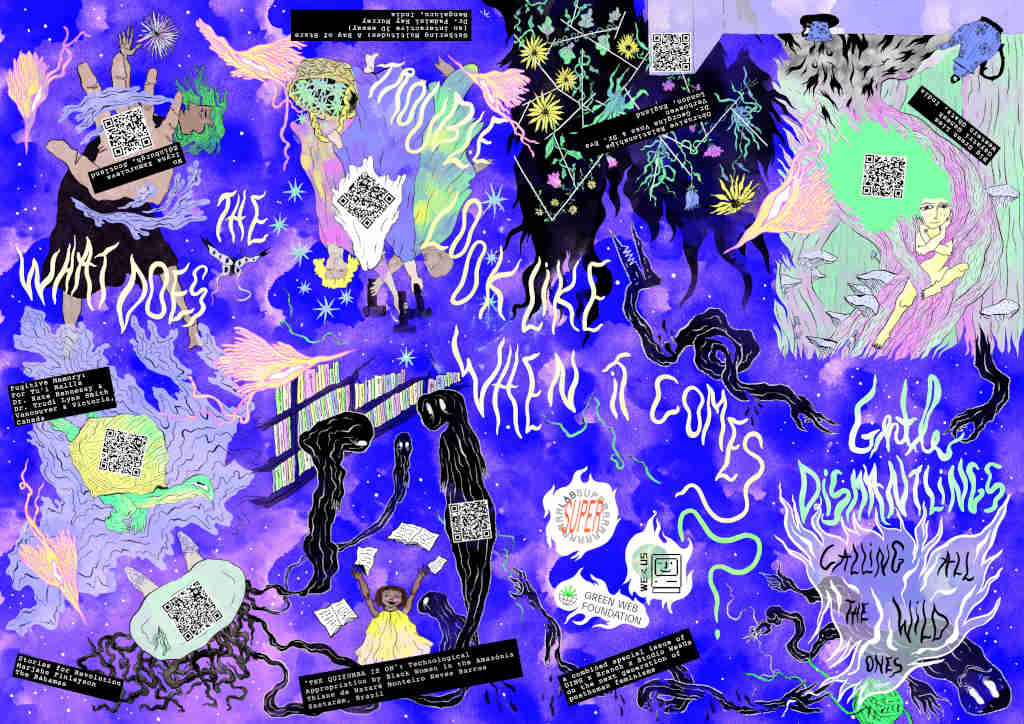
We have also included a Gentle Dismantlings zine which expresses how the writings above, while separate entities, can also be combined to build a galaxy of possibilities. The zine can be printed out at home, folded, shared with others, and then unfolded into a poster.
With these assorted tales—wild, nascent, messy, joyful, still being born—we start to make a thousand small cuts into unjust systems—the kind that make good trouble. We honor all those who ‘made a fuss’ before us, and all the fuss yet to be made by those still logging on.
Through them (and through you, dear readers) we invite new worldings to emerge, a mosaic elegantly bound with the care-full weavings of interspecies fellowship and regeneration.
Love,
Kit, Julia & Michelle
